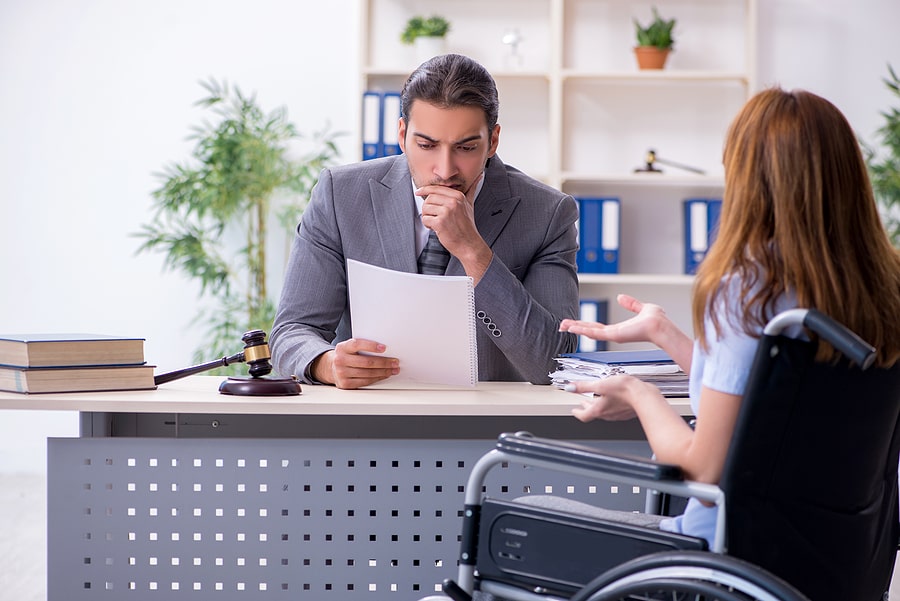 A personal injury lawyer may not take every case that comes to their attention.
A personal injury lawyer may not take every case that comes to their attention.
What, exactly, do personal injury lawyers look for, and how do they decide whom they want to work with?
A personal injury lawyer may consider these elements.
Start With a Free Consultation
Before an attorney decides to work with you, you will sit down for a free consultation. A free consultation offers considerable benefit to both the attorney and the person looking for more information about a potential personal injury claim.
During the free consultation, both you and the lawyer will have a chance to determine whether the arrangement represents a good fit for your needs. You do not have to choose to work with the first attorney you sit down with for a free consultation.
Likewise, however, the attorney you sit down with for a free consultation does not necessarily have to take your case. In many cases, attorneys may determine that taking a specific case does not represent the best interests of the firm or, in some cases, the client.
Grounds for a Claim
Before an attorney decides to take a case, he will look carefully at whether you have grounds to file a personal injury claim. Sometimes, you may think that you have the right to compensation, or you may want to claim compensation, but an attorney’s evaluation may determine that you do not have the right to compensation for your injuries.
The fact that you suffered injuries in an accident does not automatically entitle you to a personal injury claim. Rather, you will need to show that someone else’s negligence caused your accident.
To show that you have grounds for a personal injury claim, your lawyer will ask several important questions.
#1. Who caused your accident?
To file a personal injury claim, you will need to show that another party caused your accident due to an act of negligence. Suppose, for example, that you get into a car accident. In a single-car accident, you may bear liability. In a two-car accident, on the other hand, your attorney will need to look at who caused the accident.
For example, did the other driver bear complete liability for the accident due to texting and driving or ignoring the rules of the road? Did both you and the other driver contribute to the accident? If you caused the accident, you may not have the right to recover compensation from the other driver.
An attorney may also ask questions about whether you may have contributed to the accident—or even caused it due to your own negligence.
Suppose, for example, that you willingly entered an employees-only area of a store, despite clear signs indicating that only employees should enter that area. You did not have the right to enter that area. While there, you slipped and fell due to debris, dangerous flooring, or even poor repairs.
However, because you should not have entered that area, in some cases, you might not have the right to move forward with a personal injury claim. A lawyer may help evaluate those elements and determine who bears liability for your accident and whether you may have grounds to move forward with a personal injury claim.
#2. What injuries did you suffer?
In most personal injury claims, the victim’s injuries will serve as a vital foundation to the case. To file a personal injury claim, you will need to show that you suffered damages. Suppose, for example, that you had a car accident.
Back and neck injuries, from herniated discs to whiplash, occur in many car accidents, as do broken bones and traumatic brain injuries. On the other hand, some lucky accident victims walk away from the car accident with relatively few injuries—and in some cases, even when you suffer a great deal of property damage, you may walk away with no injuries at all.
If you do not suffer injuries in an accident, you may not have grounds for a personal injury claim, and a personal injury lawyer may decline to take your case. For example, suppose that you walked away from a car accident with no serious injuries. Even if your car ends up totaled by the insurance company, you did not suffer injuries in the accident, so you may not have grounds for a personal injury claim.
On the other hand, if you suffered injuries in that accident that required medical attention, you may have grounds for a claim. Likewise, suppose that you fell in a store due to the store staff’s negligence in cleaning up a spill. You got back up, dusted yourself off, and went on with your day with no serious injuries. As a result, you may not have grounds for a personal injury claim.
A Note on Emotional Distress and Claiming Damages After an Accident
Even an accident that does not result in substantial physical injuries can cause substantial emotional distress for the victim. Some people suffer from immense depression and anxiety or struggle with PTSD following an incident, especially if they ended up trapped for a long time or suffered immense distress due to the situation.
If you had to seek medical treatment for an emotional or mental condition following your accident, even if you did not suffer significant physical injuries, you may still move forward with a personal injury claim. However, some lawyers may choose not to take claims that revolve around emotional distress, especially if you do not have a medical diagnosis of those emotional challenges.
A free consultation can help determine whether a lawyer will work with you following an incident that resulted primarily in emotional distress, not a physical injury.
#3. What evidence do you have, or can your attorney collect, related to your accident?
Sometimes, you may have a hard time proving how your accident occurred and, therefore, who may bear liability for your injuries. For example, suppose that you suffered a slip and fall in a store. You got up, dusted yourself off, and went on with your day without reporting the accident.
You did not seek immediate medical attention, often because you might not have realized immediately after the incident that you had suffered a serious injury. Later, you discovered that you had suffered serious injuries, from broken bones in your hands and arms to a traumatic brain injury. However, you may not even have received medical attention until several days after the incident.
Can you still file a personal injury claim? Certainly. However, it may prove much more difficult to collect evidence related to the incident. Video evidence from the store’s security footage might serve to indicate when your accident took place.
However, if you cannot remember the date of the incident, or if the store does not have a security camera, it could prove very difficult to establish that your accident took place in that store, when it took place, or why it occurred. An attorney might choose not to take a claim when it seems very difficult to provide relevant evidence related to your claim.
Economic Compensation
Sometimes, before deciding to take a claim, an attorney may choose to look at what economic compensation you can expect from the incident. The monetary value of your claim matters, both to you and to the attorney.
Generally, compensation for a personal injury claim breaks down into three key categories. Your attorney will look at your past and future medical bills; the wages you have lost because of the accident; and the pain and suffering you have dealt with. The latter fall into a non-economic damages category, but can entitle you to additional financial compensation. Some attorneys will not accept claims under a certain value.
Most of the time, attorneys receive compensation for their legal services during a personal injury claim based on a percentage of the damages you ultimately recover for your injuries. As a result, if the value of your claim starts low, the attorney may determine that he does not want to take your claim due to the lack of value. Attorneys typically get paid when you get paid, which means that if you have a low likelihood of recovering adequate damages for your claim, it might not prove worth the attorney’s time and effort to take on your claim.
The Value of a Lawyer’s Services
In addition to the other elements of your claim, a good lawyer will look at whether they can provide services that will prove valuable to you as you pursue compensation. Sometimes, it may not prove worthwhile to work with an attorney on a personal injury claim. Other times, an attorney may feel he may not offer a good fit for you as you pursue compensation.
#1. The Type of Claim
Some personal injury attorneys specialize in specific areas of personal injury law. For example, some attorneys may focus just on car accident law, while others may focus on medical malpractice. If you choose to come to either of those attorneys with a claim for a dog bite incident or slip and fall claim, that attorney may feel that he cannot offer adequate value to your case. He may recommend another attorney or provide other avenues you can pursue as you seek compensation.
#2. Any Settlement Offer You Have Received
Have you already received a settlement offer from the insurance company? If so, the attorney you consult may want to take a look at it. Often, insurance companies will start with a low settlement offer: one that reflects only a small percentage of the compensation you may really deserve for the injuries you sustained and the financial losses you have faced.
Suppose, for example, that you sustained relatively minor injuries in your accident. The insurance company can clearly see all of your medical costs, and the adjuster might offer a reasonable settlement based on those relatively low costs. As a result, you can recover most of the damages you deserve without using an attorney.
In many cases, a personal injury attorney can raise the compensation a victim can recover for serious injuries, especially if the insurance company issues a very low offer initially. In other cases, however, the attorney may realize that he cannot provide additional value to the claim.
Likewise, an attorney might look at a high-value settlement offer provided after severe injuries and discover that it already reflects the maximum value offered by the liable party’s insurance company. If you have suffered considerable injuries, the insurance company may simply offer you the maximum compensation to move the claim on. While this occurs rarely, in those cases, an attorney cannot bring further value to your case.
A good attorney wants to offer additional value to your claim. If he feels that he cannot, he should turn down the claim during your initial consultation and encourage you to pursue an avenue that offers a greater financial advantage.
Choosing a Personal Injury Lawyer
When you suffer serious injuries in an accident, you should choose a personal injury lawyer based on your needs. A free consultation offers you a chance to get to know the lawyer, determine what he considers the value of your claim, and move forward with a decision about whether to hire that lawyer.
At the same time, the lawyer will have a chance to determine whether he wants to accept your claim. Contact a lawyer as soon after your accident as possible to determine whether you have grounds for a personal injury claim.







